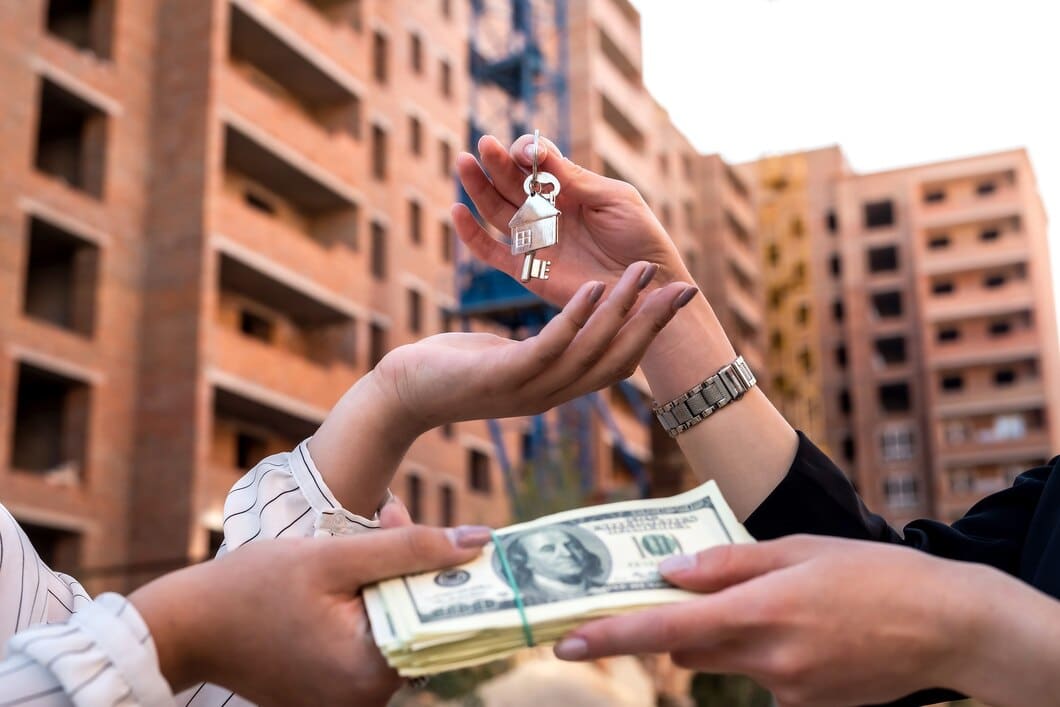Living in Dubai vs. Abu Dhabi: Essential Tips to Avoid Debt and Build Wealth

Understanding the Cost of Living in UAE’s Major Cities
Living Expenses: Dubai vs. Abu Dhabi
Dubai and Abu Dhabi are known for their luxury lifestyle and high cost of living. However, understanding the specific costs of living in each city can help you plan better. Generally, Dubai tends to be more expensive than Abu Dhabi, primarily due to the higher demand for housing and the more extensive range of premium services.
Breakdown of Typical Monthly Costs
Housing
Housing is the largest expense for most residents. In Dubai, a one-bedroom apartment in the city center can cost around AED 7,000 to AED 8,000 per month, while in Abu Dhabi, similar accommodations might range from AED 6,000 to AED 7,000.
Utilities
Utility costs in the UAE include electricity, water, and cooling, which are significant due to the climate. Monthly utilities in a standard apartment can cost between AED 500 and AED 800.
Transportation
Transportation costs vary depending on whether you own a car or use public transportation. Owning a car includes fuel, insurance, and maintenance. Public transportation is more economical, with monthly passes ranging from AED 300 to AED 400.
Major Expense Categories
Understanding where your money goes is crucial. Major expense categories typically include:
- Housing – Rent or mortgage payments.
- Utilities – Electricity, water, and cooling costs.
- Transportation – Car payments, fuel, insurance, or public transit passes.
- Groceries – Food and household supplies.
- Lifestyle and Entertainment – Dining out, social activities, and recreational expenses.
By carefully evaluating these major expense categories, you can better manage your budget and find opportunities to save.
Understanding the cost of living in Dubai and Abu Dhabi is the first step to managing your finances effectively. By considering these factors, you’ll be better prepared to make smart housing choices that match your budget and lifestyle.
Smart Housing Choices and Cost Management
Strategic Selection of Residential Areas Based on Budget and Lifestyle
Selecting the right residential area in UAE’s major cities, particularly Abu Dhabi, is a strategic move to balancing your budget and lifestyle. For those seeking affordability, neighborhoods like Mussafah offer lower rents without compromising on essential amenities. On the other hand, areas such as Al Reem Island cater to professionals and families looking for a luxurious lifestyle with a stunning sea view, albeit at a higher cost. It is crucial to weigh the proximity to your workplace, schools, and other daily needs to avoid excessive commuting expenses.
Negotiation Tactics for Rental Contracts and Understanding Local Housing Laws
Negotiation plays a pivotal role in securing a favorable rental contract. Start by researching the average rental costs in your preferred area to enter negotiations well-informed. Highlight your strengths as a tenant, such as stable income or long-term rental plans, to persuade landlords. Familiarize yourself with UAE’s housing laws to avoid unexpected issues. Ensure that the tenancy contract clearly outlines responsibilities for maintenance, rent increments, and renewal terms. A thorough understanding can prevent disputes and foster a smooth renting experience.
Practical Tips for Reducing Utility Costs in the UAE Climate
Utility costs in the UAE, driven by extreme climatic conditions, can significantly impact your budget. Here are some practical tips to manage these expenses:
- Invest in Energy-Efficient Appliances: These may have higher upfront costs but will save you money in the long run.
- Use Smart Thermostats: Program these devices to optimize air conditioning usage, which is particularly crucial during the scorching summer months.
- Curtains and Insulation: Install heat-reflective curtains and ensure your home is well-insulated to maintain a stable indoor temperature, reducing the need for excessive cooling.
- Water Conservation: Use water-saving showerheads and fix leaks promptly to avoid high water bills.
By adopting these strategies, you can effectively manage your housing costs, ensuring that your financial health remains intact.
Transportation and Daily Commute Savings
Efficiently managing transportation costs is crucial for anyone living in the UAE. In this chapter, we’ll explore various ways to reduce your commute expenses and save money in the process.
Comparing Costs: Car Ownership vs. Public Transportation
Owning a car in the UAE offers convenience and freedom, but it comes with significant costs. Here’s a comparison between the two options:
Car Ownership Costs:
- Initial Purchase and Financing: Whether you buy outright or finance, buying a vehicle involves substantial initial outlay or financing costs.
- Fuel: While relatively inexpensive in the UAE, frequent driving can add up.
- Maintenance: Routine maintenance and possible repairs are essential to account for.
- Insurance: Mandatory insurance policies can vary in cost, but they are an unavoidable expense.
- Parking: Depending on your living and work area, parking fees can add up quickly.
Public Transportation Costs:
- Metro/Buses: Monthly passes for Dubai’s metro and buses are affordable, averaging around AED 300. Abu Dhabi’s public transport can be similarly cost-effective.
- Taxis: While more expensive, taxis can be a useful supplement to public transportation for less frequent travel.
- Car Rental Apps: For occasional use, consider ride-hailing apps like Uber or Careem, which can be less costly than car ownership.
Reducing Fuel and Parking Expenses
If you do own a car, consider these strategies to lower ongoing costs:
- Fuel Efficiency: Choose fuel-efficient vehicles and drive mindfully to avoid sudden stops and starts, using less gasoline overall.
- Carpooling: Share rides with neighbors or colleagues to split fuel and parking costs.
- Off-Peak Driving: Avoid driving during peak traffic hours to reduce idling time and improve efficiency.
- Parking Solutions: Look for monthly parking deals or park further away from your destination in less expensive areas and walk.
| 🏙️ Category | Dubai | Abu Dhabi |
|---|---|---|
| 🏠 Housing (1BR – City Center) | AED 7,000 – 8,000/month | AED 6,000 – 7,000/month |
| 🔌 Utilities | AED 500 – 800/month | AED 500 – 800/month |
| 🚗 Transportation (Public) | AED 300 – 400/month | AED 300 – 400/month |
| 🛒 Groceries & Lifestyle | Higher overall due to demand and premium stores | More savings via local markets and discount chains |
Leveraging Transportation Apps and Shared Services
Technology can play an invaluable role in reducing commute costs. Here are some helpful tools:
- Ride-Hailing Apps: Services like Uber and Careem offer competitive rates and convenience.
- Car-Sharing Services: Consider temporary car renting services for short trips or occasional use.
- Public Transit Apps: Utilize RTA (Dubai) or DoT (Abu Dhabi) apps for real-time updates and efficient route planning.
By carefully weighing the costs and benefits of each transportation option and incorporating cost-saving strategies, you’ll find smart ways to manage your daily commute while keeping expenses under control.
Now with transportation covered, it’s time to turn our focus to finding the best deals and managing lifestyle expenses efficiently.
Smart Shopping and Lifestyle Adjustments
Finding the Best Deals on Groceries and Household Items
To save on groceries and household items in Abu Dhabi, a good strategy is visiting supermarkets that offer competitive prices and discounts. Stores like Carrefour and Lulu Hypermarket often have promotions and sales, which can reduce your overall shopping bill. Exploring local markets can also provide fresh produce at lower costs compared to premium stores.
To further maximize savings, consider buying items in bulk where possible. Opt for store brands over name brands, and always check expiration dates to avoid waste. Online grocery shopping platforms can sometimes offer deals not available in-store, so it’s worth comparing prices there too.
Taking Advantage of Sales Seasons and Loyalty Programs
Abu Dhabi has several sales seasons throughout the year, such as the Dubai Shopping Festival or the Abu Dhabi Shopping Season where household items, electronics, and fashion are sold at discounted prices. Planning major purchases around these sales can result in significant savings.
Additionally, most large supermarkets and retail chains offer loyalty programs. These programs provide points for every purchase, which can be redeemed for discounts or free items. Signing up for these programs is usually free and can lead to substantial savings over time.
Balancing Social Life with Budget Constraints
Maintaining a vibrant social life in an expensive city like Abu Dhabi can be challenging but not impossible. Start by seeking out free or low-cost social activities. Many parks, beaches, and cultural festivals are free to the public and offer excellent venues for socializing without spending much.
Dining out can be expensive, so limit it to special occasions. Consider hosting potluck dinners at home or exploring off-the-beaten-track eateries that offer lower prices. Apps like Zomato Gold can also be useful for dining discounts.
Engaging in cost-effective hobbies such as joining a book club, taking a walk along the Corniche, or participating in community events can also help you maintain a balanced budget while still enjoying social interactions.
By employing these strategies, you can smartly manage your finances while enjoying life in Abu Dhabi. Remember, it’s all about making informed choices and planning ahead.
Building Savings and Investment Strategies
Living in Abu Dhabi can be expensive, but with a strategic approach to savings and investments, you can build wealth and ensure financial security. Here, we break down the essentials for understanding the UAE banking systems, exploring investment opportunities, and managing your tax-free income efficiently.
Understanding UAE Banking Systems and Savings Accounts
Opening a bank account in the UAE is straightforward. Banks like Emirates NBD, Abu Dhabi Commercial Bank (ADCB), and Mashreq Bank offer various savings accounts tailored to different needs. These accounts typically include:
- Savings accounts: Offer competitive interest rates and easy access to your funds.
- Fixed deposit accounts: Provide higher interest rates in return for locking your money for a specified period.
- Current accounts: Convenient for daily transactions and come with checkbooks and debit cards.
When choosing a bank, consider fees, interest rates, and the quality of customer service. Many banks offer online and mobile banking, making it easy to manage your finances on the go.
Exploring Investment Opportunities in the UAE Market
The UAE market offers diverse investment options suited for various risk profiles:
- Real Estate: Investing in property, particularly in areas like Yas Island or Reem Island, can provide substantial returns.
- Stock Market: The Abu Dhabi Securities Exchange (ADX) and Dubai Financial Market (DFM) lists an array of stocks, from emerging companies to established firms.
- Mutual Funds and ETFs: Ideal for those looking to diversify their portfolios without active management.
- Savings Plans: Offered by banks and financial institutions, these plans ensure steady growth of your savings over time.
It’s advisable to consult with a financial advisor to tailor an investment strategy aligned with your financial goals and risk tolerance.
Tax-Free Income Management and International Money Transfer Options
One of the financial perks of living in the UAE is its tax-free income policy. However, managing this income requires careful planning:
- Budgeting: Allocate portions of your income to savings, investments, and daily expenses to ensure balanced financial health.
- International Money Transfers: Use services like TransferWise, Western Union, or bank transfers for remittances. Compare fees and conversion rates to get the best deals.
- Retirement Savings: Without mandatory retirement savings in the UAE, it’s wise to set up personal pension plans or investments dedicated for retirement.
Understanding your financial landscape in Abu Dhabi helps in making informed decisions and building a sturdy financial foundation. Now that you have the tools to manage your income and investments, you can focus on building a secure and prosperous future in the UAE.
Emergency Planning and Financial Security
Building an Emergency Fund Suitable for UAE Living Costs
Living in Abu Dhabi can be financially demanding, making it crucial to have an emergency fund to cushion against unforeseen expenses. Aim to save at least three to six months’ worth of living costs. Considering the higher cost of living, an emergency fund of AED 20,000 to AED 60,000 is advisable. This fund should cover rent, utilities, transportation, groceries, and any other essential expenses during tough times.
Understanding Health Insurance Requirements and Options
Health insurance is mandatory in the UAE, and it is essential to understand the various options available. Employers typically provide basic insurance, but it’s wise to evaluate if additional coverage is necessary. Look into top insurers like Daman, AXA, and Aetna for comprehensive plans that cover a wide range of medical needs. Ensure your plan includes coverage for emergencies, hospital stays, and outpatient services.
Protecting Yourself from Common Financial Pitfalls in the UAE
Financial pitfalls are common, especially for expatriates unfamiliar with the local financial landscape. To protect yourself:
- Avoid High-Interest Debt: Steer clear of credit cards with high-interest rates unless you can pay off the balance each month.
- Be Wary of Investment Scams: Research thoroughly before investing. Avoid schemes that promise high returns with little risk.
- Understand Contract Terms: Read and understand the fine print of any contracts, whether it’s for housing, loans, or services, to avoid unexpected fees.
Building a strong emergency fund, securing adequate health insurance, and avoiding financial pitfalls are key steps to ensuring financial security while living in Abu Dhabi. Staying informed and proactive will help you manage your finances more confidently and effectively.
To read more content on the subject see here





